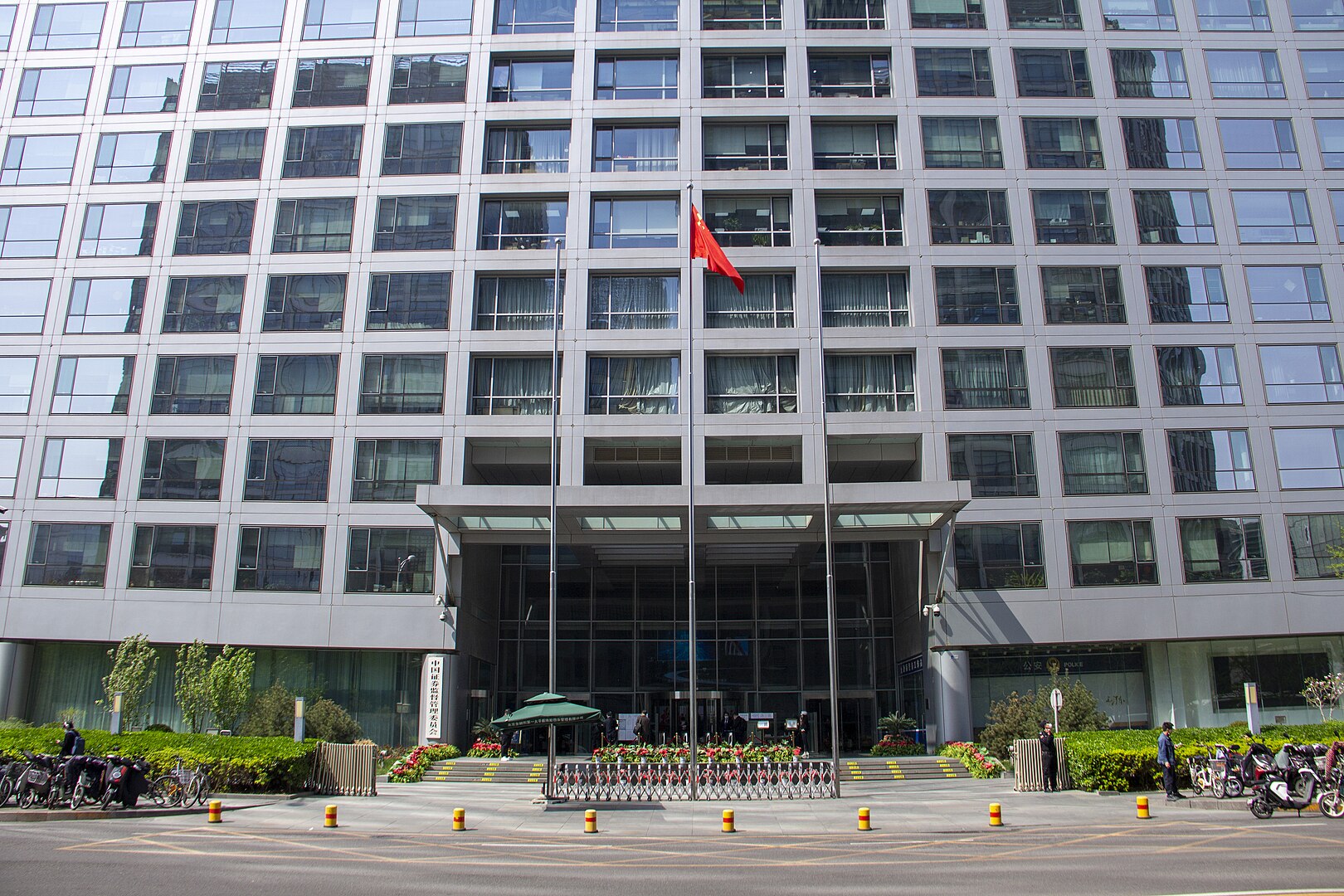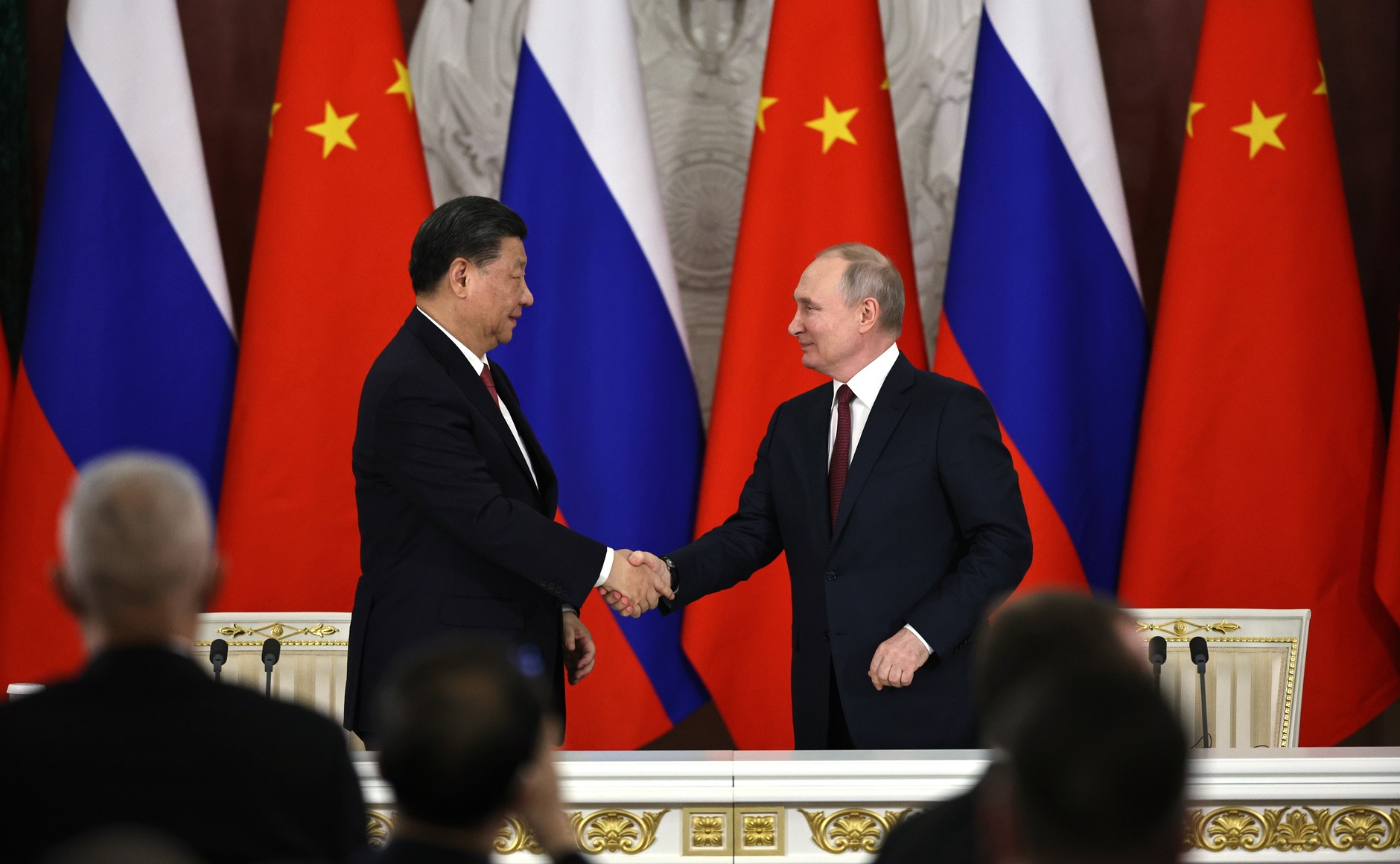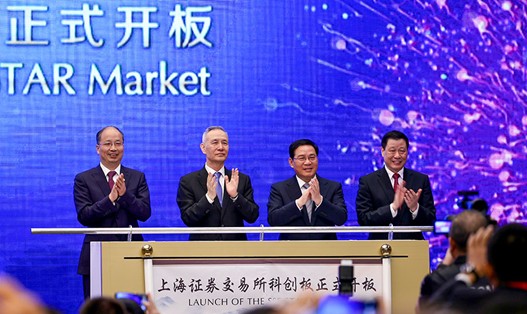
Generally Unacceptable Accounting Principles: Lessons From PwC and AstraZeneca’s Contrasting Fates
Generally Unacceptable Accounting Principles: Lessons From PwC and AstraZeneca’s Contrasting Fates
Executive Summary:
- The contrasting fates of foreign companies in two recent fraud cases suggest that the People’s Republic of China (PRC) treats firms differently depending on their political utility.
- AstraZeneca has been guilty of widespread medical insurance fraud but has probably been treated leniently by authorities because it is seen as critical to the PRC’s pharmaceutical sector—a strategic priority.
- The local branch of auditing giant PwC has been banned from operating for six months following its fraudulent audits of companies including the real estate giant Evergrande. The outsized impact of the real estate crisis and the realization that Beijing cannot trust audit reports of state-owned companies is likely behind the response.
- The divergence in punishments could also relate to the replacement value of the firms, as well as to the potential impact on foreign investor sentiment.
The pharmaceutical company AstraZeneca had good news from the People’s Republic of China (PRC) at the end of November, with the National Healthcare Security Administration (国家医疗保障局) pre-approving its cancer drug Enhertu for the national health insurance reimbursement list (SCMP, November 29). This news will be welcomed, as the company recently has navigated a major fraud case involving falsification of test results for lung cancer patients in eight provinces in the PRC to boost drug sales. Despite the scale of fraud and corruption involved in the case, AstraZeneca has been treated leniently by authorities, most likely because Beijing is keen to develop its domestic pharmaceutical industry in the PRC.
Foreign companies in other sectors operating in the PRC involved in fraud and corruption have faced much harsher treatment. PricewaterhouseCoopers Zhong Tian (普华永道中天), the local auditing arm in the People’s Republic of China (PRC) of global accounting firm PwC, has been fined renminbi (RMB) 325 million ($45 million) by authorities for a major violation of audit standards, and suspended from operating for six months (China Securities Regulatory Commission [CSRC], September 13). The fines relate to real estate giant China Evergrande Group (中国恒大集团) falsely reporting revenue and profits by tens of billions of dollars. In total, Evergrande has been fined over $500 million.
The scale of the Evergrande fraud and the related audit failures by PwC call into question the overall effectiveness of “generally acceptable accounting principles” in the PRC, even if audit fraud is not necessarily unusual given endemic corruption within the PRC system. Accounting and audit standards differ in every national jurisdiction based on how local laws on the subject have developed historically. In the United States, generally accepted accounting principles are regulated by the Securities and Exchange Commission (SEC) and are the default for companies in the country. The SEC’s former chair has articulated the importance of such principles succinctly, arguing that the strength of US capital markets “depends on investors knowing that they can rely on the financial information that is available to them when they make investment decisions,” and that high-quality accounting standards “are the foundation upon which this reliance is built” (SEC, January 5, 2017).
According to PwC’s own materials, “The auditor is responsible for expressing an opinion indicating that reasonable assurance has been obtained that the financial statements as a whole are free from material misstatement, whether due to fraud or error, and that they are fairly presented in accordance with the relevant accounting standards (e.g., International Financial Reporting Standards)” (PwC, May, 2017). This independent role requires the auditor to be both professional and honest when reporting findings, even when management of the company is dishonest.
In the PRC, the Ministry of Finance (MOF; 财政部) is responsible for formulating and organizing the implementation of the national accounting system, as well as for guiding and supervising the work of certified public accountants, accounting firms, and accounting agencies, such as PwC (Ministry of Finance, accessed November 26). The ministry has worked since 1992 on the gradual implementation of the Chinese Generally Accepted Accounting Principles (“China GAAP”), also known as the Chinese Accounting Standards. Despite some technical differences, there is broad convergence between these and international accounting standards (Swiss Chinese Chamber of Commerce Shanghai, December 21, 2020). The extent of fraud and corruption in the PRC economy, and especially in state-owned enterprises (SOEs), remains high, even though the country’s regulatory regime has rapidly expanded over the last three decades. Nevertheless, this problem is not identified in the independent audits conducted by accounting firms such as PwC.
Beijing has been signaling that fraud must be better addressed in state-owned enterprises (SOEs). The extent of fraud and corruption in the PRC economy, and especially in SOEs, remains high, even though the country’s regulatory regime has rapidly expanded over the last three decades. Nevertheless, this problem is not identified in the independent audits conducted by accounting firms such as PwC. In June, the Supreme People’s Court issued a set of five case studies of corporate fraud that the court described as commonplace and a high priority for regulators to investigate and prosecute. That same month, the State Council issued a notice from CSRC and other departments, titled “On Further Improving the Comprehensive Punishment and Prevention of Financial Fraud in the Capital Market (关于进一步做好资本市场财务造假综合惩防工作的意见)” (STCN, June 27; China Brief, August 23). These concerns are also conspicuously absent from annual audits of private companies and SOEs, despite apparently being taken seriously by PRC regulators.
The Evergrande Fraud
At its height, Evergrande was a sprawling conglomerate that owned around 1,300 real estate projects across 280 cities, as well as a range of other businesses in sectors as diverse as sports, healthcare, electric vehicles, and entertainment. By 2018, the company was reportedly the most valuable real estate brand in the world (China Daily, September 6, 2018). Over the last three years, this has all come crashing down. By January 2024, Evergrande was ordered by the High Court in Hong Kong to be wound up after the company’s assets were found to be insufficient to cover its debts (China Daily, January 30).
The CSRC’s announcement of fines on PwC details the extent of fraud at Evergrande that its accounting firm covered up. Evergrande Real Estate falsely inflated its revenue in 2019 by RMB 214 billion ($30 billion), equivalent to just over half of its operating income. It also falsely inflated profits by over RMB 40 billion ($5.7 billion), equivalent to more than 63 percent of total profits. The following year saw even more egregious misreporting, with revenue inflated by nearly 80 percent and profits by almost 90 percent. In addition, Evergrande issued bonds worth over RMB 20bn ($2.8bn), which were fraudulent as they were based on the falsified data from its annual reports (CSRC, May 21).
In June, the CSRC fined Hengda Real Estate Group Co. Ltd., Evergrande’s principal subsidiary, RMB 4.2 billion ($580 million) for financial misconduct. The group’s founder, Hui Ka Yan (许家印; Xu Jiayin), was fined RMB 47 million ($6.5 million) and banned for life from participating in the securities market (Caixin, June 1). The fraud was the largest in the PRC’s history. But it is almost certainly not the last, given certain key features of the PRC’s audit system.
The PwC Audit Failures
PwC is a global network of member companies that are separate legal entities but operate under the PwC brand. The firm claims to have 370,000 employees in 149 countries and reported revenues of more than $55 billion for the last financial year (PwC, October 31). [1] In the PRC, PwC has offices in 28 different cities, [2] and employs over 18,000 people (PwC, accessed November 26). For a while, PwC was the largest accounting firm in the country (Acuity, October 5, 2018).
The CSRC’s announcement in September roundly condemned PwC’s conduct, writing that the firm “failed to maintain due professional skepticism, failed to make correct professional judgments, and failed to discover Evergrande Real Estate’s large-scale and high-proportion financial fraud (未保持应有的职业怀疑,未作出正确的职业判断,未发现恒大地产大金额、高比例财务造假).” It goes on to state that “about 88 percent of the records were inconsistent with actual implementation (约88% 的记录与实际执行情况不一致) … most of the real estate projects that were considered to meet the delivery conditions during the on-site visits were not actually completed and delivered (现场走访认为符合交楼条件的楼盘大部分实际未竣工交付) … [and] reviewers issued conclusions based on their ‘trust’ in the visiting personnel (复核人员基于对走访人员的“信任”出具复核结论)” (CSRC, September 13).
The penalties imposed on PwC by the CSRC under the 2020 Securities Law of the PRC (中华人民共和国证券法) have been compounded in the last few months. A number of SOEs, including PetroChina (中国石油), China Railway Group (CREC; 中国中铁), the People’s Insurance Company of China (PICC; 中国人保), and China Merchants Bank (CMB; 招商银行) announced the termination of their contracts in May (Caixin, June 3). Then, on the same day the CSRC announced its penalties, the MOF also penalized the firm, finding that PwC and its Guangzhou branch knew that there were major misstatements in Evergrande’s financial statements but nevertheless ignored them when issuing its audit reports (MOF, September 13).
The MOF’s imposed its administrative penalty decision on PwC under the Accounting Law (会计法) and the Administrative Punishments Law (行政处罚法) (MOF, August 14; NPC Observer, accessed November 26). It also imposed an additional fine of RMB 116 million, suspended PwC’s business for 6 months, and revoked the operating license of the Guangzhou branch. The ministry also revoked the Certified Public Accountant certificates of four accountants who wrote the audit reports on the financial statements of Evergrande Real Estate from 2018–2020 and fined a further seven.
The case has had an impact on how regulation is conducted across the PRC. The MOF has committed to actively coordinating the cross-border audit supervision cooperation mechanism with the Hong Kong accounting and finance authorities to investigate illegality, indicating how the Hong Kong Special Administrative Region is seen by the central government as a necessary part of national financial law and regulatory policies (China Brief, October 20, 2023; China Brief Notes, December 3).
AstraZeneca
AstraZeneca (阿斯利康), the UK pharmaceutical company, in the PRC, has also been found guilty of fraud in recent weeks (Caixin, November 4). The fraud involved AstraZeneca sales representatives collaborating with genetic testing companies in the PRC to alter patient test results so that they could qualify for the prescription of a lung cancer treatment drug.
The AstraZeneca fraud is far more widespread than the PwC failures with Evergrande. Employees have been found to have been involved in insurance fraud since 2021 in eight provinces and municipalities including Guangdong, Fujian, Sichuan, Chongqing, and Shanghai, with over 50 regional managers and sales representatives implicated and some already convicted. The case started in 2021 with some employees in Shenzhen reportedly altering patient test reports to falsely claim medical insurance, which AstraZeneca reported to local authorities, leading to 14 members of the sales team being convicted of criminal charges in 2023. In 2022, the case spread to Fujian province with ten more sales reps arrested (Caixin, November 4).
In the ordinary course of events, a scandal of this magnitude would be a business-ending event for an international company operating in the PRC. However, AstraZeneca appears to hardly be affected. “AstraZeneca ‘operating normally,’” ran one headline in state-run newspaper China Daily, quoting a spokesman for the Ministry of Foreign Affairs as stating that “the Chinese government welcomes foreign companies to invest and operate in China, and will protect their legitimate rights and interests.”
There are two conclusions to draw from this official response. First, the lack of regulatory action suggests political imperatives to avoid further damage international business confidence are overriding significant violations of the law. Second, it reflects the importance the PRC government places on the pharmaceutical industry, which it sees as critical for the country’s development, not least because of the deficiencies exposed by the COVID-19 pandemic (China Daily, November 1).
International companies operating in the PRC cannot afford to ignore endemic fraud and corruption risks. No company is immune to fraud and corruption among their own employees, though well-managed international firms such as PwC can easily fail to detect lower level employees in the PRC who diverge from company policies and culture—this usually occurs out of self-interest driven by either financial gain, advancement, or both.
Conclusion
AstraZeneca has been allowed to continue operating as normal, despite widespread fraud, for which employees have been handed severe prison sentences. This might be good news for the company, but it underscores the extent to which politics is in command in the PRC, despite efforts to institutionalize “China GAAP” and related legal frameworks. The contrast with PwC’s case demonstrates that, for international companies investing in or operating in the PRC, enforcement actions can be selective and may vary in impact.
A company’s criticality could be key to its political fortunes. If it has a high replacement value—such as AstraZeneca—then it may receive more clemency from authorities. If other alternatives are on offer—such as other Big Four accounting firms, or perhaps indigenous competitors—then political lessons can more readily be meted out through suspensions of operations.
The nature of the crime may also play a role. Medical insurance fraud, while no doubt serious, has limited impact on the country’s political economy in the aggregate. Pervasive accounting fraud that fails to communicate to officials the health of some of the country’s largest and most important companies, has the potential to be much more destabilizing.
PwC’s fate begs the question of whether similar misconduct is being perpetrated by other auditors. Such deficiencies will have corollary effects on future investors in PRC companies, who will be highly skeptical of company balance sheets and will likely request fresh independent financial reviews in addition to annual audits before investing. But it will also concern regulators scrambling to stabilize an economy and who rely on sound financial data.
Notes
[1] Because of laws and regulations in some countries that require accounting firms to be locally owned and independent, PwC (like other large multinational accounting firm networks) is not a global partnership, a single firm, or a multinational corporation.
[2] These are Beijing, Changsha, Chengdu, Chongqing, Dalian, Guangzhou, Guiyang, Haikou, Hangzhou, Hefei, Hong Kong, Jinan, Kunming, Macau, Nanjing, Ningbo, Qingdao, Shanghai, Shenyang, Shenzhen, Suzhou, Tianjin, Wuhan, Wuxi, Xiamen, Xi’an, Zhengzhou, and Zhuhai.


